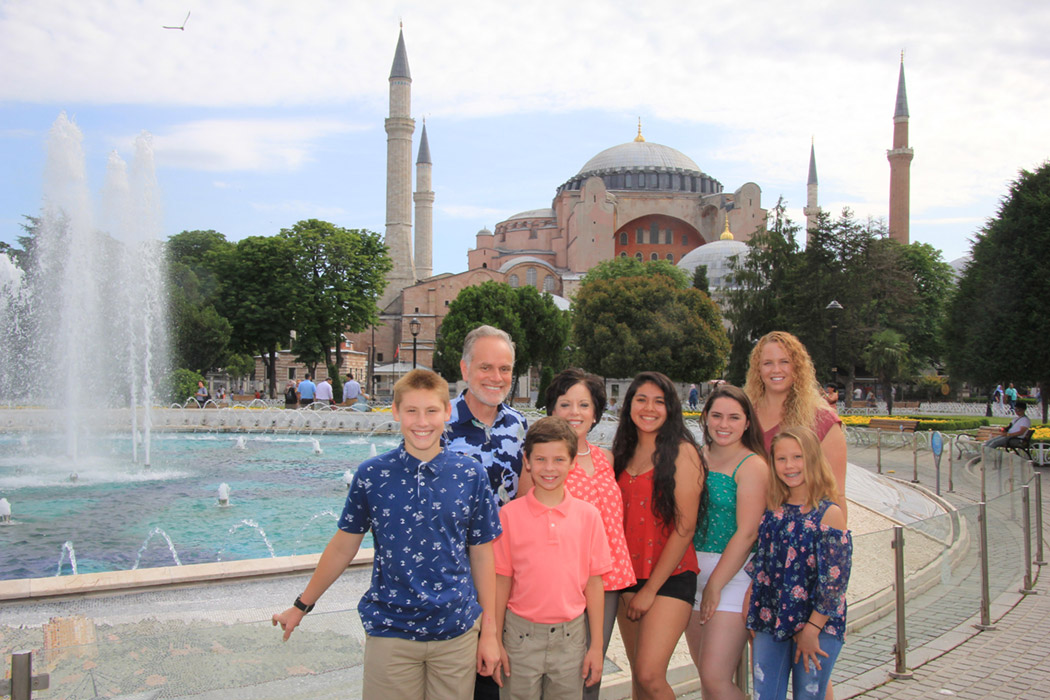Think of the most recent form or application you were asked to complete. Many times, we see three blanks: Last Name, First Name, Middle Name or Initial.
I always catch a glimpse of history filling out a form like that, even if I’m just renewing my driver’s license or getting a library card. My middle name—Bashir—connects me to a family legacy.
My grandfather Bashir Sarsam was born in Mosul in 1891, when it was still part of the Ottoman Empire. He was a chief medical officer for the region and had six children. My father Jamal Bashir Sarsam was the youngest. He moved to the United States many decades ago from the northern part of modern-day Iraq, bringing with him the family name and culture. We have a detailed family tree dating back to the 1600’s, and the family patriarch at the trunk of the tree is Ibrahim, or Abraham in English. It is a splendid coincidence that about 3,500 years earlier the patriarch and central figure revered in three faith traditions—Christianity, Judaism and Islam—was Father Abraham.
Likewise, the name “Bashir” originates in ancient religious texts. In Arabic, it means “bringer of good news,” and as Christians, my family celebrates the Annunciation, when the archangel Gabriel (the English equivalent of Bashir) announced that Jesus would be born.
So for anyone who has ever wondered why I’m so interested in history, this stuff goes really deep in my family. Just standing at the counter filling out my driver’s license renewal form presents an opportunity to reflect on family, culture and world history as well as the state of affairs today.
And today, much is being lost. My dad’s hometown of Mosul was predominantly Christian just 100 years ago and was part of a living and vibrant tradition dating back 50-60 generations. Much of that culture is nearly gone today, systematically decimated. In Afghanistan, Buddhist art and architecture 2,000 years old have also been destroyed. In fact, globally, National Geographic reports that in the last half of the 20th century, 230 languages went extinct, as documented by the UNESCO Atlas of the World’s Languages in Danger.
And yet, I also see more hopeful signs. As an example, the Hagia Sophia (Greek for “Holy Wisdom”) in modern day Istanbul was built in the 6th century, and though today it is no longer a place of worship, it was the world’s greatest church for 1,000 years. Within this architectural marvel it was said that visitors could not tell if they were still on earth or transported to heaven, due the stunning mosaics and amazing musical worship. In recent years, two researchers from Stanford University who study sound went to Istanbul, and within this immense church, they mapped the unique acoustical properties by popping balloons and recording the reverberations. They then used that knowledge to recreate what music would have sounded like in the Hagia Sophia in ancient times.
My middle name Bashir echoes and reverberates much the same way, orienting me to places and times far beyond the here and now. When I use it and start to consider broader perspectives, I have to ask, should we work harder as a society to not let go of irreplaceable personal and cultural heirlooms because they connect us to each other across centuries and cultures?
In France, work continues to rebuild the Notre Dame Cathedral, which was nearly destroyed by fire in 2019. It represents Truth and the higher ideals we can aspire to, just like the acoustics of the Hagia Sophia.
I find joy in the name Bashir and am honored to share it with my father and many other people past, present and future. The good news it brings me inspires me daily.
